luffy登录注册页面 redis介绍安装 redis普通连接与连接池 redis数据类型 redis字符串类型
回顾
1.测试腾讯短信 v3 sdk 提供发送短信
模板 {1} {2}
2.发送短信做成包,以后无论做成什么框架中,直接导入使用
包名 send_sms_v3
-__init__.py # 导了给外部使用的函数
-settings.py # 配置信息 --->>> APPID
-sms.py # 核心:获取 n 位数字验证码,send_sms
3.发送短信接口
-csrf:解决方案
-前端使用post请求,携带手机号 {mobile:'245255', sign:defgafa}
-后端路由 --->>>使用action装饰器 send_sms --->>>
cache.set(key,value,过期事件)
# 重点:value值可以是什么类型 --->>> 任意数据类型都可以
# 如何存 --->>> 序列化 pickle(能够序列化任意数据类型)
4.短信登录接口
前端:post请求 {mobie:3435325,code:999}
后端:action装饰器 --->>>
视图类的代码,跟之前多方式登录的代码一模一样,使用的序列化类不一样
重写get_serializer_class
把逻辑写在序列化类中
封装
5.短信注册接口
前端:post请求 {mobie:234552,code:3435,password:3435}
后端:写了个新的视图类
重写create --->>> 自动生成路由
核心逻辑在再序列化类
pickle是python独有的,可以序列化任意数据类型,比如对象。并发量高
Django为何支持并发量高?
django并不能支持高并发而生的,它是方便开发而生的。所以一般关于Django的项目都是公司内部的项目,
好多前端,开发阶段用的是wsgirf(拥有并发的能力,地址改成0.0.0.0就能够支持所有在的局域网的人访问),部署上线才使用uwsgi性能更高,
如下如图中左侧的前端都朝web服务器发送请求都来执行Django中的index视图函数,那么来一条在wsgirf就会开设一条线程,就会有4条线程,当中一条执行耗时5s,另外当中一条执行耗时1秒钟结束,那么这一条线程就可以执行其他的请求。那么这5秒钟执行的那条请求就会一直停在那执行,只剩下三条线程在干活了。这样并发量就下来了,只有三个线程在干活了,但如果使用异步,耗时5秒的请求执行就不是原有的线程在执行了,而是又另外开了一个线程去执行。这样就就可以恢复4条线程处理请求,这就是提高了并发量
耗时操作就是用了异步
9:10

celery进程
登录页面分析
点击登录,弹出登录组件,盖住整个屏幕(position定位)
点击登录组件中的X,关闭登录组件(子传父)
component中新建一个login组件
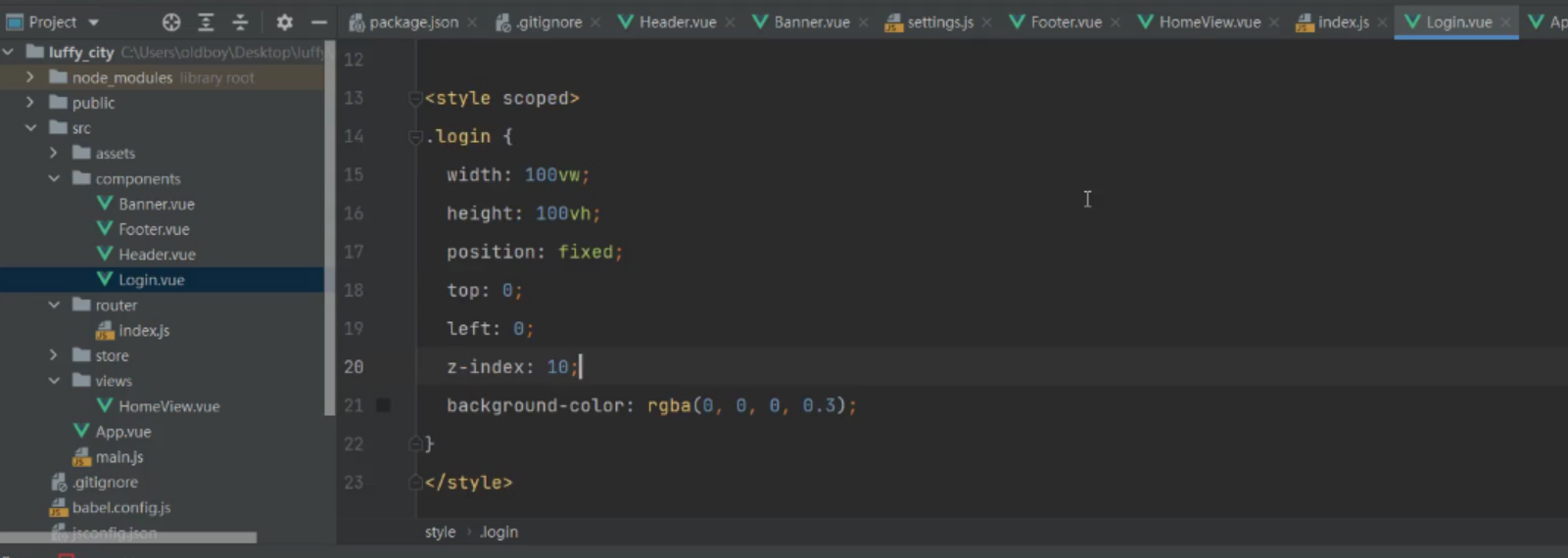
宽高充满全屏,绝对定位,指定在哪,顶部左侧都是0,
z-index它是层叠数字越高层级越高,10层级越高
rgba:三原色,a代表透明度
头部组件
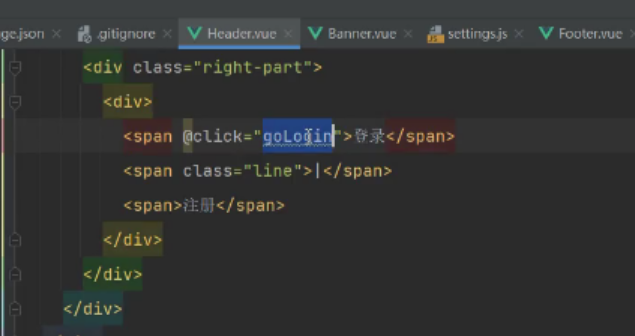
导进组件,注册
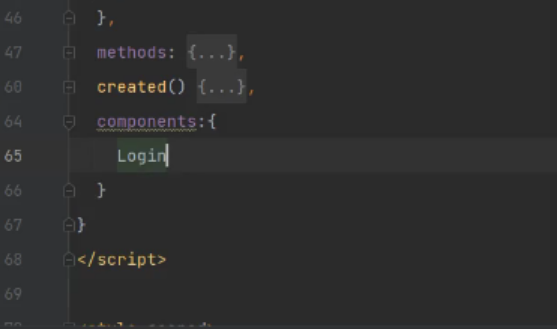
导进来先隐藏起来,不然就显示了
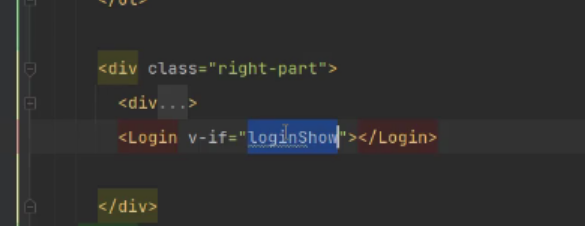
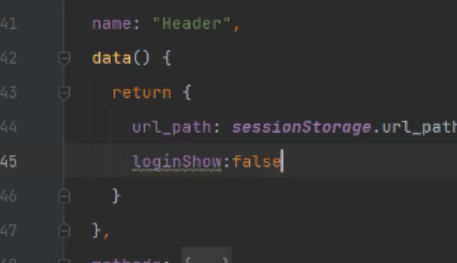
点loginShow时就是True显示了
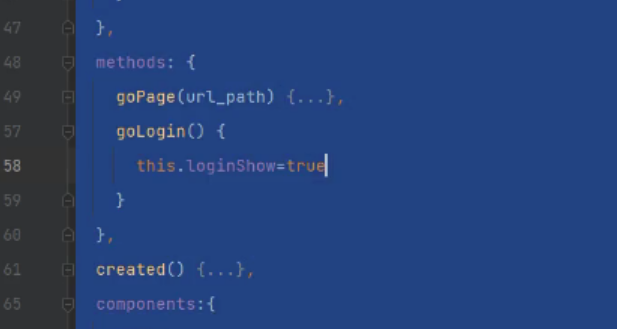
结果:
一点击整个页面就黑了

在login里面放了个span标签,实现点击整个x灰色的页面整个销毁掉。那么这就涉及了子传父,子是login,父是我的header,通过自定义事件

只要让login不显示就行了
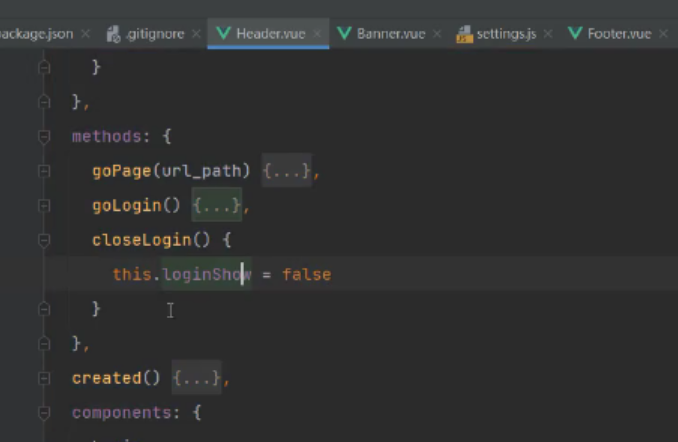
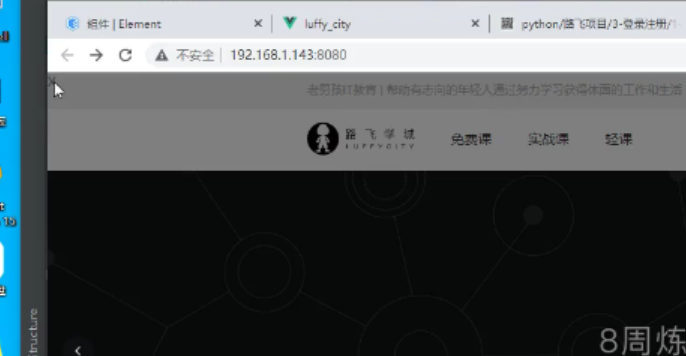
那么就得在login里面绑定个事件
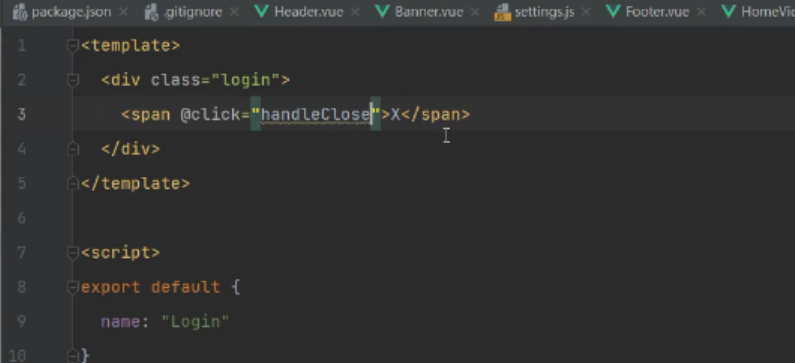
指定父组件中的事件名字
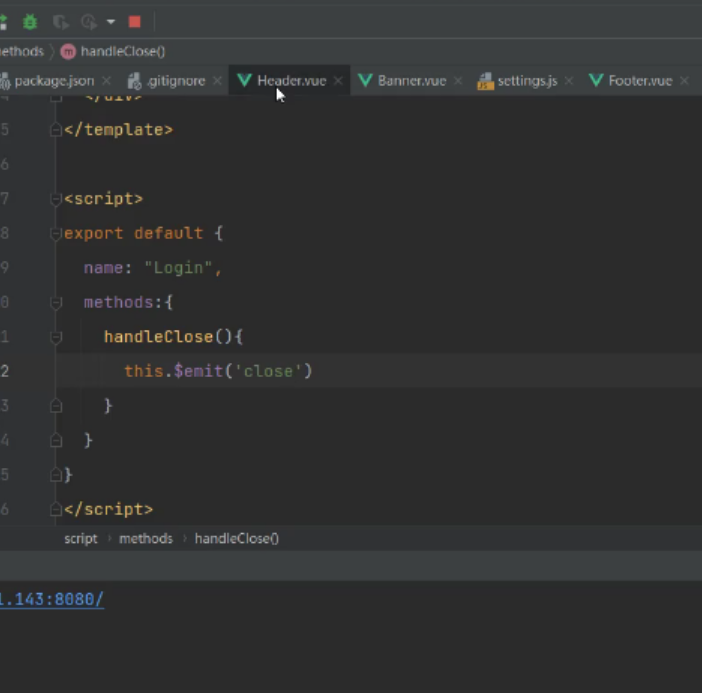
这样点击登录就变灰色,点击span标签就销毁
代码
组件:login.vue
<template>
<div class="login">
<span style="padding: 50px" @click="closeLogin">X</span>
</div>
</template>
<script>
export default {
name: "Login",
methods:{
closeLogin(){
this.$emit('go_close')
}
}
}
</script>
<style scoped>
.login {
width: 100vw;
height: 100vh;
position: fixed;
top: 0;
left: 0;
z-index: 10;
background-color: rgba(0, 0, 0, 0.5);
}
</style>
组件Header.vue
<div class="right-part">
<div>
<span @click="goLogin">登录</span>
<span class="line">|</span>
<span>注册</span>
</div>
</div>
</div>
<Login v-if="login_show" @go_close="goClose"></Login>
goLogin() {
this.login_show = true
},
goClose() {
this.login_show = false
}
登录页面
login.vue
<template>
<div class="login">
<div class="box">
<i class="el-icon-close" @click="close_login"></i>
<div class="content">
<div class="nav">
<span :class="{active: login_method === 'is_pwd'}"
@click="change_login_method('is_pwd')">密码登录</span>
<span :class="{active: login_method === 'is_sms'}"
@click="change_login_method('is_sms')">短信登录</span>
</div>
<el-form v-if="login_method === 'is_pwd'">
<el-input
placeholder="用户名/手机号/邮箱"
prefix-icon="el-icon-user"
v-model="username"
clearable>
</el-input>
<el-input
placeholder="密码"
prefix-icon="el-icon-key"
v-model="password"
clearable
show-password>
</el-input>
<el-button type="primary" @click="login">登录</el-button>
</el-form>
<el-form v-if="login_method === 'is_sms'">
<el-input
placeholder="手机号"
prefix-icon="el-icon-phone-outline"
v-model="mobile"
clearable
@blur="check_mobile">
</el-input>
<el-input
placeholder="验证码"
prefix-icon="el-icon-chat-line-round"
v-model="sms"
clearable>
<template slot="append">
<span class="sms" @click="send_sms">{{ sms_interval }}</span>
</template>
</el-input>
<el-button @click="mobile_login" type="primary">登录</el-button>
</el-form>
<div class="foot">
<span @click="go_register">立即注册</span>
</div>
</div>
</div>
</div>
</template>
<script>
export default {
name: "Login",
data() {
return {
username: '',
password: '',
mobile: '',
sms: '', // 验证码
login_method: 'is_pwd',
sms_interval: '获取验证码',
is_send: false,
}
},
methods: {
close_login() {
this.$emit('close')
},
go_register() {
this.$emit('go')
},
change_login_method(method) {
this.login_method = method;
},
check_mobile() {
if (!this.mobile) return;
// js正则:/正则语法/
// '字符串'.match(/正则语法/)
if (!this.mobile.match(/^1[3-9][0-9]{9}$/)) {
this.$message({
message: '手机号有误',
type: 'warning',
duration: 1000,
onClose: () => {
this.mobile = '';
}
});
return false;
}
// 手机号前端校验通过---》开始后端手机号是否存在的校验
// 后台校验手机号是否已存在
this.$axios({
url: this.$settings.BASE_URL + '/user/userinfo/check_mobile/?mobile=' + this.mobile,
method: 'get',
}).then(response => {
// code 如果是100,说明手机号存在,登录功能,才能发送短信
// == 只比较值是否相等
// === 即比较值,又比较类型
if (response.data.code == 100) {
this.$message({
message: '账号正常',
type: 'success',
duration: 1000,
});
// 发生验证码按钮才可以被点击
this.is_send = true;
} else {
this.$message({
message: '账号不存在',
type: 'warning',
duration: 1000,
onClose: () => {
this.mobile = '';
}
})
}
}).catch(() => {
});
},
send_sms() {
// this.is_send 如果是false,函数直接结束,就不能发送短信
if (!this.is_send) return;
// 按钮点一次立即禁用
this.is_send = false;
let sms_interval_time = 60;
this.sms_interval = "发送中...";
// 定时器: setInterval(fn, time, args)
// 往后台发送验证码
this.$axios({
url: this.$settings.BASE_URL + '/user/userinfo/send_sms/',
method: 'post',
data: {
mobile: this.mobile
}
}).then(response => {
if (response.data.code == 100) { // 发送成功
// 启动定时器
let timer = setInterval(() => {
if (sms_interval_time <= 1) {
clearInterval(timer);
this.sms_interval = "获取验证码";
this.is_send = true; // 重新回复点击发送功能的条件
} else {
sms_interval_time -= 1;
this.sms_interval = `${sms_interval_time}秒后再发`;
}
}, 1000);
} else { // 发送失败
this.sms_interval = "重新获取";
this.is_send = true;
this.$message({
message: '短信发送失败',
type: 'warning',
duration: 3000
});
}
}).catch(() => {
this.sms_interval = "频率过快";
this.is_send = true;
})
},
login() {
if (!(this.username && this.password)) {
this.$message({
message: '请填好账号密码',
type: 'warning',
duration: 1500
});
return false // 直接结束逻辑
}
this.$axios({
url: this.$settings.BASE_URL + '/user/userinfo/login_mul/',
method: 'post',
data: {
username: this.username,
password: this.password,
}
}).then(response => {
let username = response.data.username;
let token = response.data.token;
this.$cookies.set('username', username, '7d');
this.$cookies.set('token', token, '7d');
this.$emit('success', response.data.result);
}).catch(error => {
console.log(error.response.data)
})
},
mobile_login() {
if (!(this.mobile && this.sms)) {
this.$message({
message: '请填好手机与验证码',
type: 'warning',
duration: 1500
});
return false // 直接结束逻辑
}
this.$axios({
url: this.$settings.BASE_URL + '/user/userinfo/login_sms/',
method: 'post',
data: {
mobile: this.mobile,
code: this.sms,
}
}).then(response => {
let username = response.data.username
let token = response.data.token
// 放到cookie中,7天过期
this.$cookies.set('username', username, '7d')
this.$cookies.set('token', token, '7d')
// 关闭登录框
this.$emit('success')
}).catch(error => {
console.log(error.response.data)
})
}
}
}
</script>
<style scoped>
.login {
width: 100vw;
height: 100vh;
position: fixed;
top: 0;
left: 0;
z-index: 10;
background-color: rgba(0, 0, 0, 0.7);
}
.box {
width: 400px;
height: 420px;
background-color: white;
border-radius: 10px;
position: relative;
top: calc(50vh - 210px);
left: calc(50vw - 200px);
}
.el-icon-close {
position: absolute;
font-weight: bold;
font-size: 20px;
top: 10px;
right: 10px;
cursor: pointer;
}
.el-icon-close:hover {
color: darkred;
}
.content {
position: absolute;
top: 40px;
width: 280px;
left: 60px;
}
.nav {
font-size: 20px;
height: 38px;
border-bottom: 2px solid darkgrey;
}
.nav > span {
margin: 0 20px 0 35px;
color: darkgrey;
user-select: none;
cursor: pointer;
padding-bottom: 10px;
border-bottom: 2px solid darkgrey;
}
.nav > span.active {
color: black;
border-bottom: 3px solid black;
padding-bottom: 9px;
}
.el-input, .el-button {
margin-top: 40px;
}
.el-button {
width: 100%;
font-size: 18px;
}
.foot > span {
float: right;
margin-top: 20px;
color: orange;
cursor: pointer;
}
.sms {
color: orange;
cursor: pointer;
display: inline-block;
width: 70px;
text-align: center;
user-select: none;
}
</style>
注册页面
Register.vue
<template>
<div class="register">
<div class="box">
<i class="el-icon-close" @click="close_register"></i>
<div class="content">
<div class="nav">
<span class="active">新用户注册</span>
</div>
<el-form>
<el-input
placeholder="手机号"
prefix-icon="el-icon-phone-outline"
v-model="mobile"
clearable
@blur="check_mobile">
</el-input>
<el-input
placeholder="密码"
prefix-icon="el-icon-key"
v-model="password"
clearable
show-password>
</el-input>
<el-input
placeholder="验证码"
prefix-icon="el-icon-chat-line-round"
v-model="sms"
clearable>
<template slot="append">
<span class="sms" @click="send_sms">{{ sms_interval }}</span>
</template>
</el-input>
<el-button @click="register" type="primary">注册</el-button>
</el-form>
<div class="foot">
<span @click="go_login">立即登录</span>
</div>
</div>
</div>
</div>
</template>
<script>
export default {
name: "Register",
data() {
return {
mobile: '',
password: '',
sms: '',
sms_interval: '获取验证码',
is_send: false,
}
},
methods: {
close_register() {
this.$emit('close', false)
},
go_login() {
this.$emit('go')
},
check_mobile() {
if (!this.mobile) return;
// js正则:/正则语法/
// '字符串'.match(/正则语法/)
if (!this.mobile.match(/^1[3-9][0-9]{9}$/)) {
this.$message({
message: '手机号有误',
type: 'warning',
duration: 1000,
onClose: () => {
this.mobile = '';
}
});
return false;
}
// 后台校验手机号是否已存在
this.$axios({
url: this.$settings.BASE_URL + '/user/userinfo/check_mobile/',
method: 'get',
params: {
mobile: this.mobile
}
}).then(response => {
// 手机号不存在,才能发送短信,才能注册
if (response.data.code != 100) {
this.$message({
message: '欢迎注册我们的平台',
type: 'success',
duration: 1500,
});
// 发生验证码按钮才可以被点击
this.is_send = true;
} else {
this.$message({
message: '账号已存在,请直接登录',
type: 'warning',
duration: 1500,
})
}
}).catch(() => {
});
},
send_sms() {
// this.is_send必须允许发生验证码,才可以往下执行逻辑
if (!this.is_send) return;
// 按钮点一次立即禁用
this.is_send = false;
let sms_interval_time = 60;
this.sms_interval = "发送中...";
// 往后台发送验证码
this.$axios({
url: this.$settings.BASE_URL + '/user/userinfo/send_sms/',
method: 'post',
data: {
mobile: this.mobile
}
}).then(response => {
if (response.data.code==100) { // 发送成功
let timer = setInterval(() => {
if (sms_interval_time <= 1) {
clearInterval(timer);
this.sms_interval = "获取验证码";
this.is_send = true; // 重新回复点击发送功能的条件
} else {
sms_interval_time -= 1;
this.sms_interval = `${sms_interval_time}秒后再发`;
}
}, 1000);
} else { // 发送失败
this.sms_interval = "重新获取";
this.is_send = true;
this.$message({
message: '短信发送失败',
type: 'warning',
duration: 3000
});
}
}).catch(() => {
this.sms_interval = "频率过快";
this.is_send = true;
})
},
register() {
if (!(this.mobile && this.sms && this.password)) {
this.$message({
message: '请填好手机、密码与验证码',
type: 'warning',
duration: 1500
});
return false // 直接结束逻辑
}
this.$axios({
url: this.$settings.BASE_URL + '/user/register/',
method: 'post',
data: {
mobile: this.mobile,
code: this.sms,
password: this.password
}
}).then(response => {
this.$message({
message: '注册成功,3秒跳转登录页面',
type: 'success',
duration: 3000,
showClose: true,
onClose: () => {
// 去向成功页面
this.$emit('success')
}
});
}).catch(error => {
this.$message({
message: '注册失败,请重新注册',
type: 'warning',
duration: 1500,
showClose: true,
onClose: () => {
// 清空所有输入框
this.mobile = '';
this.password = '';
this.sms = '';
}
});
})
}
}
}
</script>
<style scoped>
.register {
width: 100vw;
height: 100vh;
position: fixed;
top: 0;
left: 0;
z-index: 10;
background-color: rgba(0, 0, 0, 0.3);
}
.box {
width: 400px;
height: 480px;
background-color: white;
border-radius: 10px;
position: relative;
top: calc(50vh - 240px);
left: calc(50vw - 200px);
}
.el-icon-close {
position: absolute;
font-weight: bold;
font-size: 20px;
top: 10px;
right: 10px;
cursor: pointer;
}
.el-icon-close:hover {
color: darkred;
}
.content {
position: absolute;
top: 40px;
width: 280px;
left: 60px;
}
.nav {
font-size: 20px;
height: 38px;
border-bottom: 2px solid darkgrey;
}
.nav > span {
margin-left: 90px;
color: darkgrey;
user-select: none;
cursor: pointer;
padding-bottom: 10px;
border-bottom: 2px solid darkgrey;
}
.nav > span.active {
color: black;
border-bottom: 3px solid black;
padding-bottom: 9px;
}
.el-input, .el-button {
margin-top: 40px;
}
.el-button {
width: 100%;
font-size: 18px;
}
.foot > span {
float: right;
margin-top: 20px;
color: orange;
cursor: pointer;
}
.sms {
color: orange;
cursor: pointer;
display: inline-block;
width: 70px;
text-align: center;
user-select: none;
}
</style>
Header.vue
<template>
<div class="header">
<div class="slogan">
<p>老男孩IT教育 | 帮助有志向的年轻人通过努力学习获得体面的工作和生活</p>
</div>
<div class="nav">
<ul class="left-part">
<li class="logo">
<router-link to="/">
<img src="../assets/img/head-logo.svg" alt="">
</router-link>
</li>
<li class="ele">
<span @click="goPage('/free-course')" :class="{active: url_path === '/free-course'}">免费课</span>
</li>
<li class="ele">
<span @click="goPage('/actual-course')" :class="{active: url_path === '/actual-course'}">实战课</span>
</li>
<li class="ele">
<span @click="goPage('/light-course')" :class="{active: url_path === '/light-course'}">轻课</span>
</li>
</ul>
<div class="right-part">
<div v-if="!username">
<span @click="put_login">登录</span>
<span class="line">|</span>
<span @click="put_register">注册</span>
</div>
<div v-else>
<span>{{ username }}</span>
<span class="line">|</span>
<span>注销</span>
</div>
</div>
</div>
<Login v-if="is_login" @close="close_login" @go="put_register" @success="success_login"/>
<Register v-if="is_register" @close="close_register" @go="put_login" @success="success_register"/>
</div>
</template>
<script>
import Login from "@/components/Login";
import Register from "@/components/Register";
export default {
name: "Header",
data() {
return {
// 当前所在路径,去sessionStorage取的,如果取不到,就是 /
url_path: sessionStorage.url_path || '/',
is_login: false,
is_register: false,
username: this.$cookies.get('username'),
token: this.$cookies.get('token'),
}
},
methods: {
goPage(url_path) {
// 已经是当前路由就没有必要重新跳转
if (this.url_path !== url_path) {
this.$router.push(url_path);
}
sessionStorage.url_path = url_path;
},
put_login() {
this.is_login = true;
this.is_register = false;
},
put_register() {
this.is_login = false;
this.is_register = true;
},
close_login() {
this.is_login = false;
},
close_register() {
this.is_register = false;
},
success_login() {
this.is_login = false;
this.username = this.$cookies.get('username')
this.token = this.$cookies.get('token')
},
success_register() {
this.is_login = true
this.is_register = false
}
},
created() {
// 组件加载万成,就取出当前的路径,存到sessionStorage this.$route.path
sessionStorage.url_path = this.$route.path;
// 把url_path = 当前路径
this.url_path = this.$route.path;
},
components: {
Login,
Register
}
}
</script>
<style scoped>
.header {
background-color: white;
box-shadow: 0 0 5px 0 #aaa;
}
.header:after {
content: "";
display: block;
clear: both;
}
.slogan {
background-color: #eee;
height: 40px;
}
.slogan p {
width: 1200px;
margin: 0 auto;
color: #aaa;
font-size: 13px;
line-height: 40px;
}
.nav {
background-color: white;
user-select: none;
width: 1200px;
margin: 0 auto;
}
.nav ul {
padding: 15px 0;
float: left;
}
.nav ul:after {
clear: both;
content: '';
display: block;
}
.nav ul li {
float: left;
}
.logo {
margin-right: 20px;
}
.ele {
margin: 0 20px;
}
.ele span {
display: block;
font: 15px/36px '微软雅黑';
border-bottom: 2px solid transparent;
cursor: pointer;
}
.ele span:hover {
border-bottom-color: orange;
}
.ele span.active {
color: orange;
border-bottom-color: orange;
}
.right-part {
float: right;
}
.right-part .line {
margin: 0 10px;
}
.right-part span {
line-height: 68px;
cursor: pointer;
}
</style>
Redis介绍与安装
介绍:
# redis:缓存数据库【大部分时间做缓存,不仅仅可以做缓存】,非关系型数据库【区别于mysql关系型数据库】
-nosql:非关系型的数据库
-c语言写的 服务(监听端口),用来存储数据的,数据是存储在内存中,取值,放值速度非常快, 10w qps
# key-value形式存储,没有表的概念
# 版本
最新:7.x
公司里 5.x比较多
面试题:redis为什么这么快?
-
纯内存操作、监听着各个用户
-
网络模型使用的IO多复用(epoll)(可以处理的请求数更多)
-
6.x之前,单进程,单线程架构,没有线程进程间切换,更少的消耗资源
安装
mac 源码编译安装。
linux 源码编译安装。
win 微软自己,基于源码,改动,编译成安装包:
最新5.x版本 https://githun.com/tporadowski/redis/releases/
最新3.x版本 https://github.com/microsoftarchive/redis/releases
我们安装的是最新的5.x版本:
一路下一步安装,安装完释放出两个命令,会把redis自动加入到服务中
redis-server --- mysqld 服务端的启动命令
redis-cli ---- mysql 客户端的启动命令
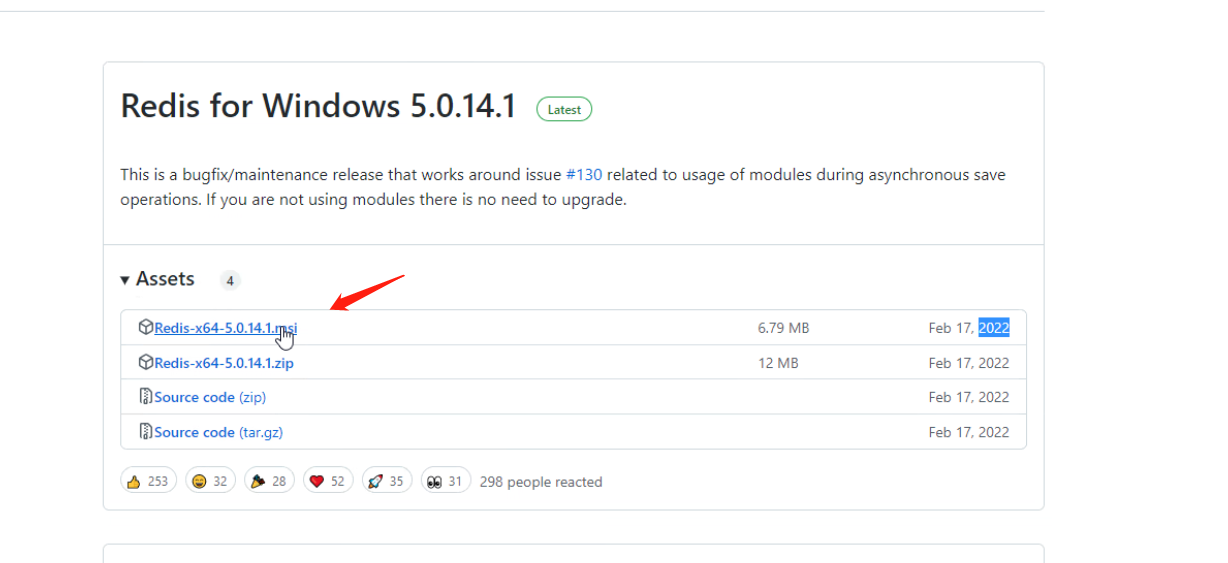
安装目录
做成服务的本质就是当你启动运行的时候执行了如下一条命令
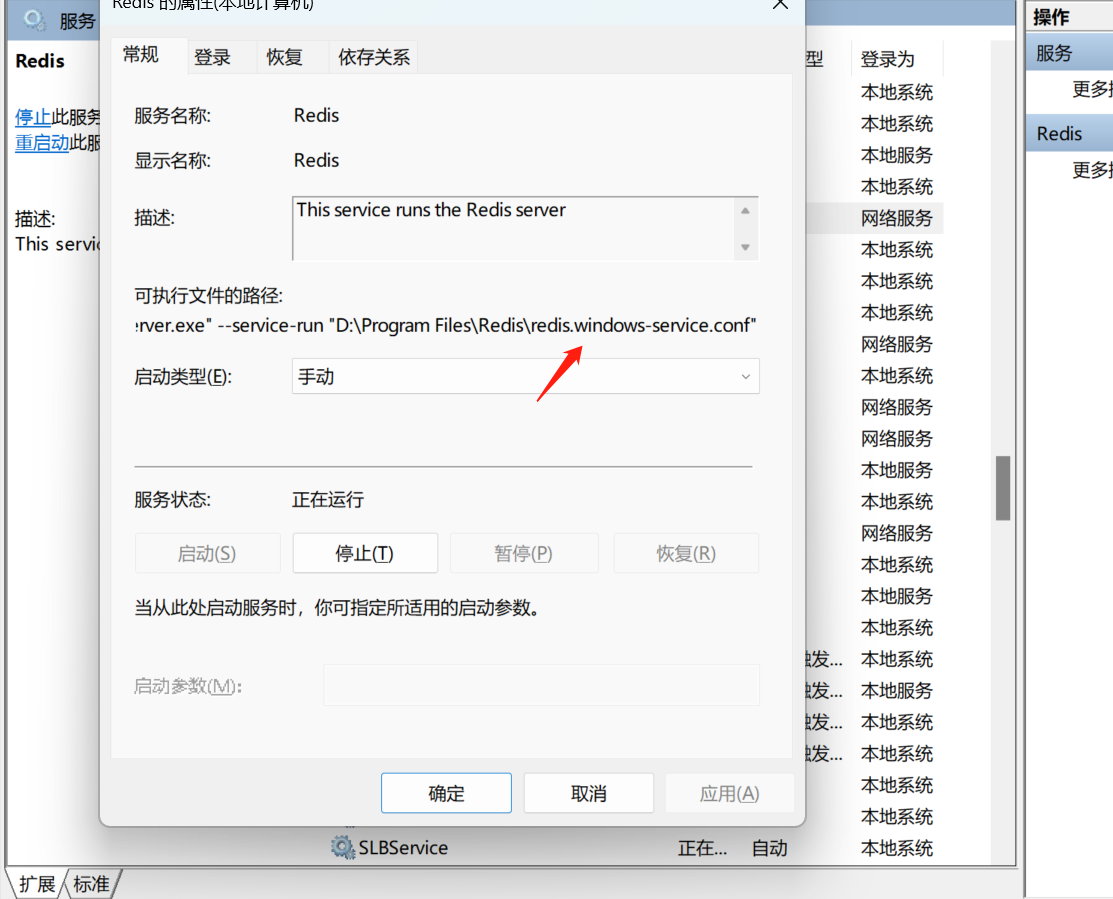

打开配置文件中,可以修改端口号、地址。地址如果改成0.0.0.0所有局域网都可以访问。
Redis.windows-service.conf

bind 127.0.0.1 服务,跑的地址
port 6397 监听的端口
什么是服务???:写的Django就是个服务,mysql也会是服务监听着3306端口,redis也是监听着6379端口。这要向6379发网络请求就能响应,但是协议并不是http协议,mysql、redis都不是。但Django是http协议,服务与协议不一样,都是服务各自用的协议是不一样
启动
方式一:在服务中启动,点击启动
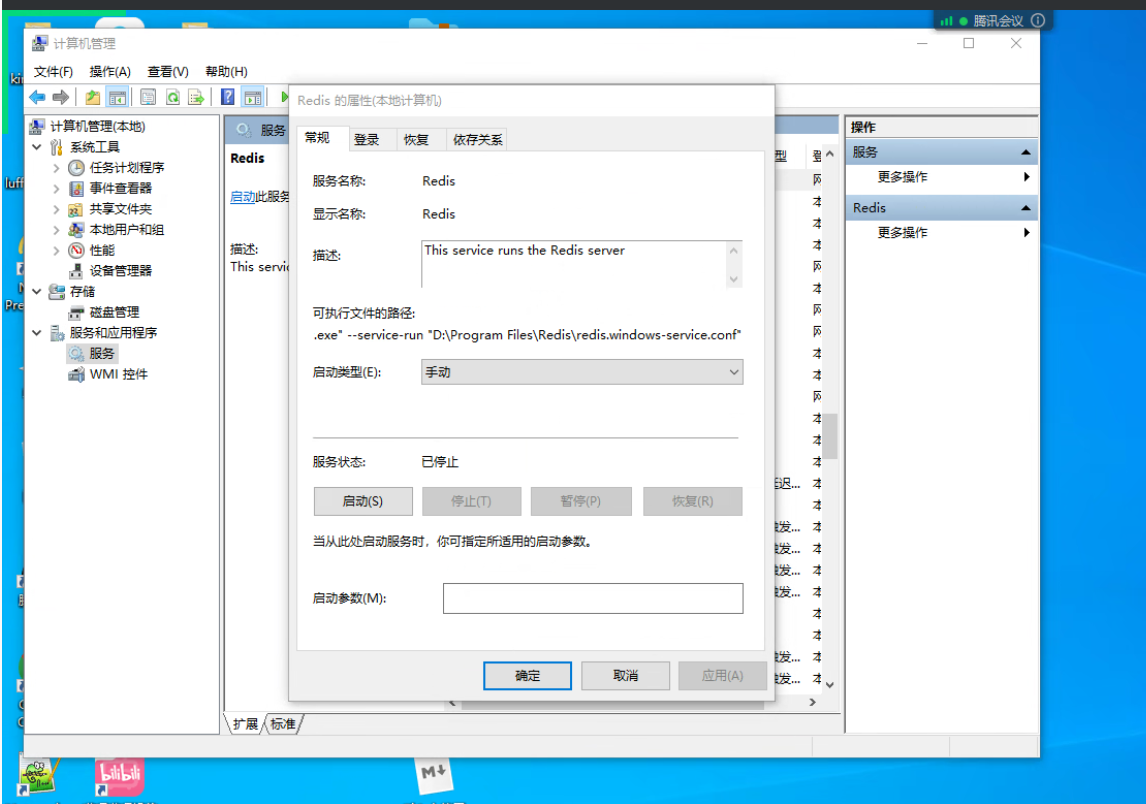
方式二:使用命令
redis-server 指定配置文件,如果不指定,会默认
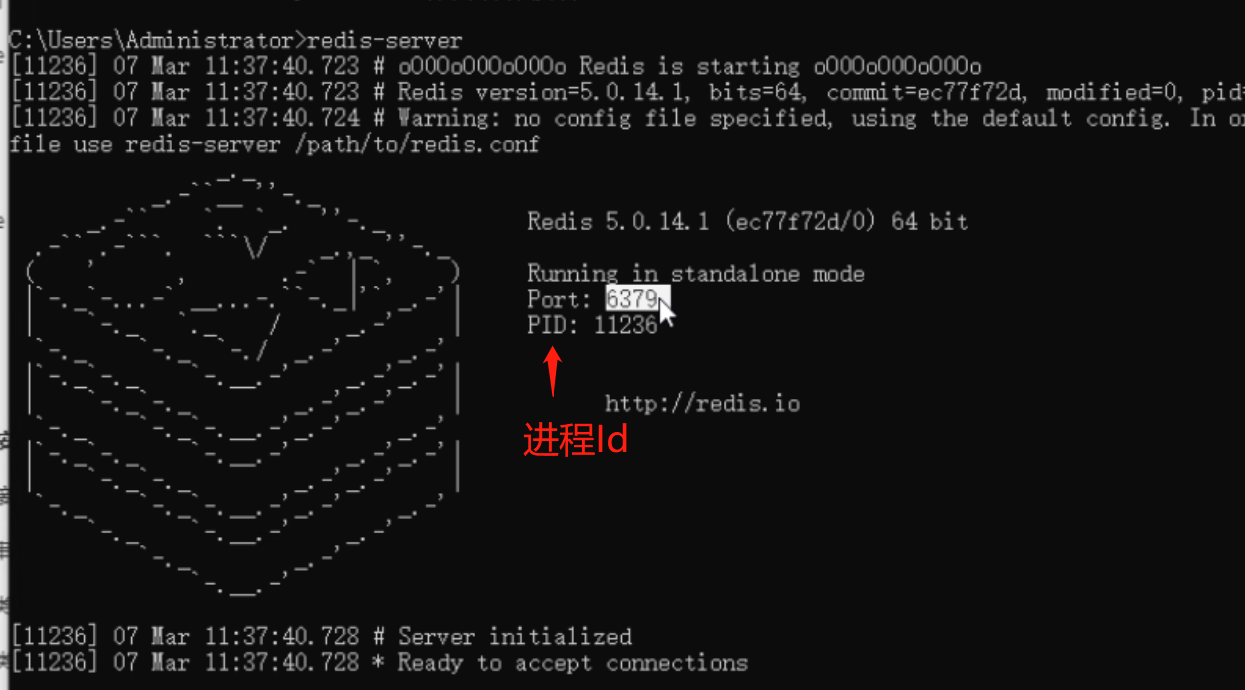
客户端连接
方式1:redis-cli,默认连接本地的6379端口
keys * 查看数据
set name lpz 存数据 key value的形式
get name 取数据
退出 quit
方式二:
redis-cili -h 地址 -p 端口(意味着可以远程连接)
IP连接

方式三:
使用图形化客户端操作
Redis Desktop Manager :开源的,原来免费,后来收费了 推荐用(在mac,win,linux 都有)
Redis Client 小众
Qt5 qt是个平台,专门用来做图形化界面的
可以使用c++写
可以使用python写 pyqt5 使用python写图形化界面 (少量公司再用)
图形化连接:

连接设置:
密码用户名不用填写

它总共有16个库,默认进去就是第0个库
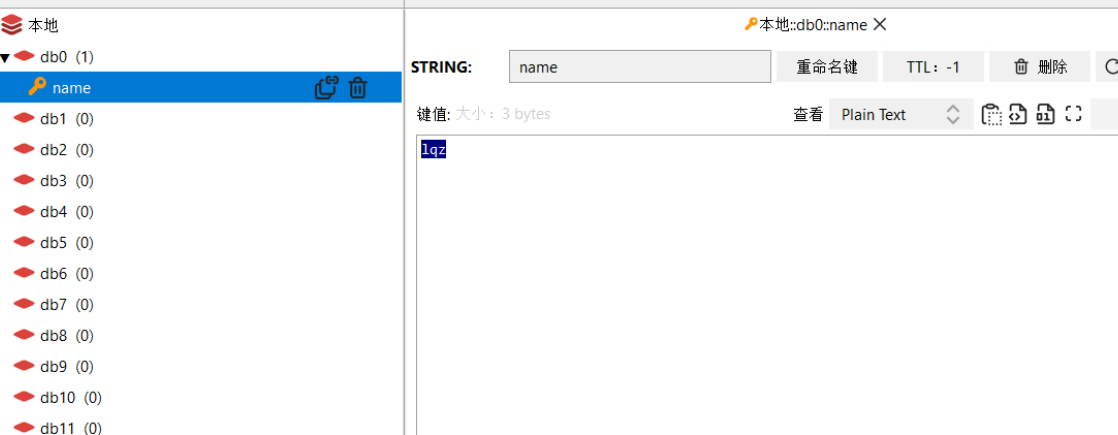
在配置文件中查看
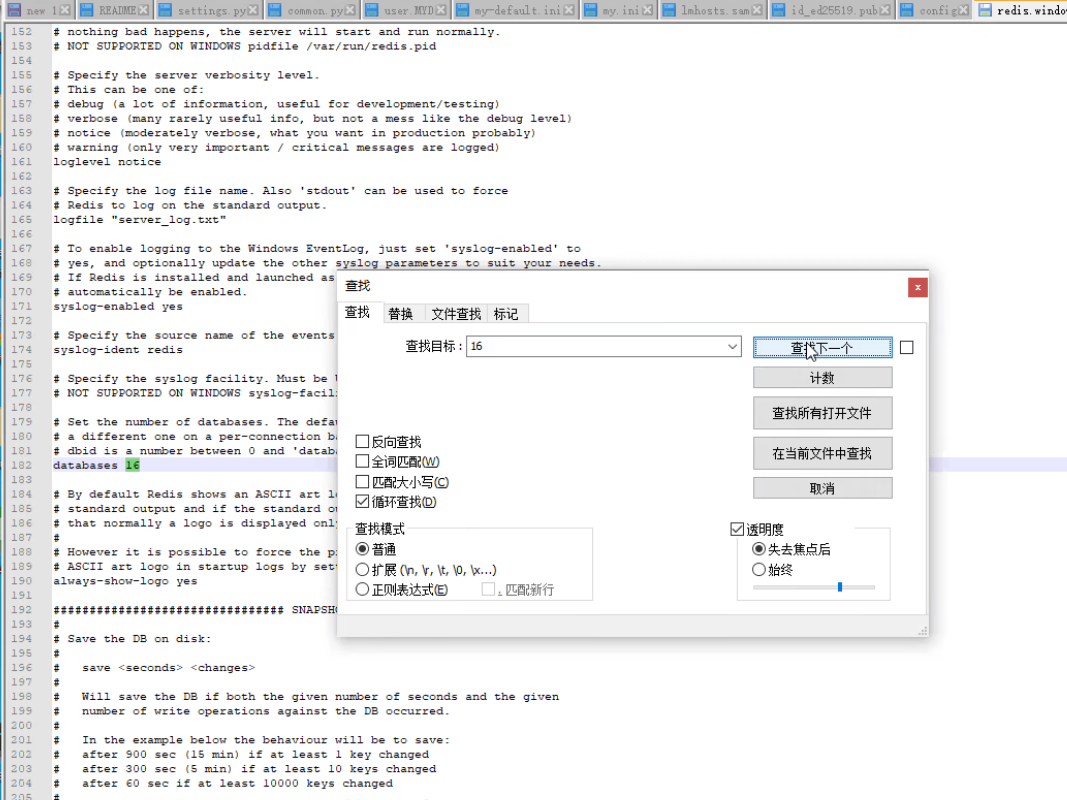
Redis普通连接和连接池
# python 相当于客户端,操作redis
# 安装模块:pip install redis
# 补充:Django中操作mysql,没有连接池,一个请求就是一个mysql连接
可能会有问题,并发数过高,导致mysql连接数过高,影响mysql性能
可以使用Django连接池:https://blog.51cto.com/liangdongchang/5140039
Django中操作连接池:
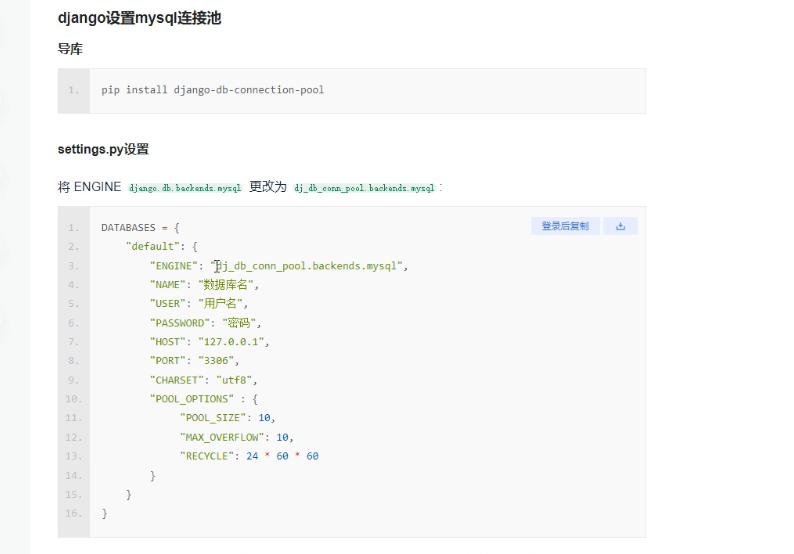
普通连接
安装redis 模块:pip install redis
1.导入模块的Redis类 --- from redis import Redis
2.实例化得到对象 --- conn = Redis(host='127.0.0.1', port=6397)
3.使用conn,操作redis,获取name的值,res = conn.get('name') 返回的数据是bytes格式
4.设置值 conn.set('age', 19)
conn.close() 关闭
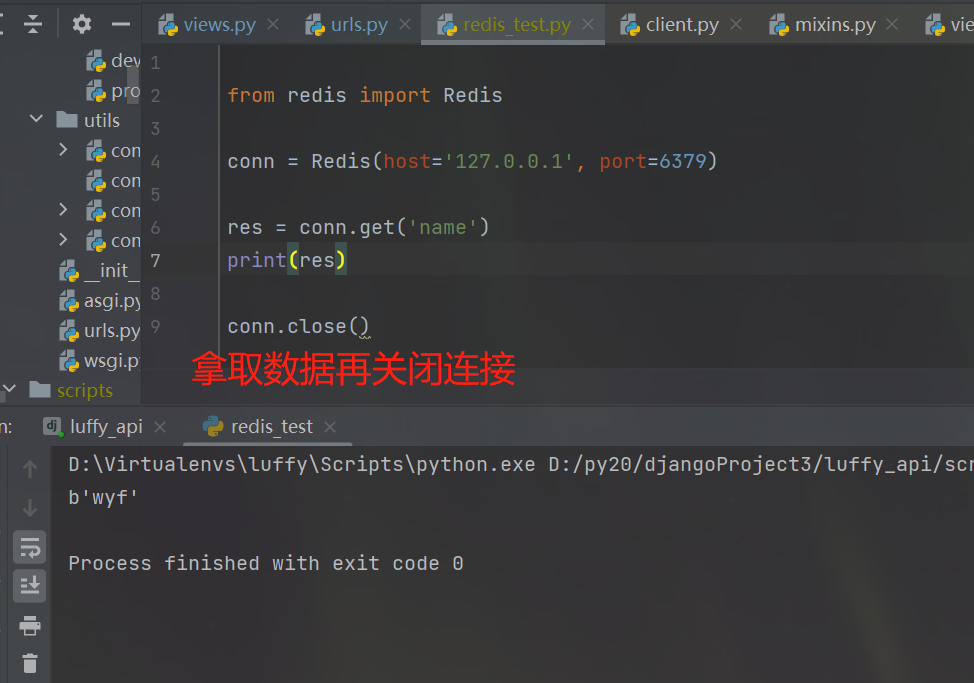
连接池连接
举例:连接池的概念
python开设了100个线程,相当于就有100个连接了,那么这样连接数太多,而影响服务的性能。那么就有连接池,在连接池里放入两个连接,就只与redis连接。这样即使程序中开设了100个线程,它每次只能从池里拿到两个连接,其他线程就只能等待用完放回池里,这样每次连接就只能2个连接了。保证它连接时的性能
目的:不要创建太多的连接数。连接数太多影响服务的性能。
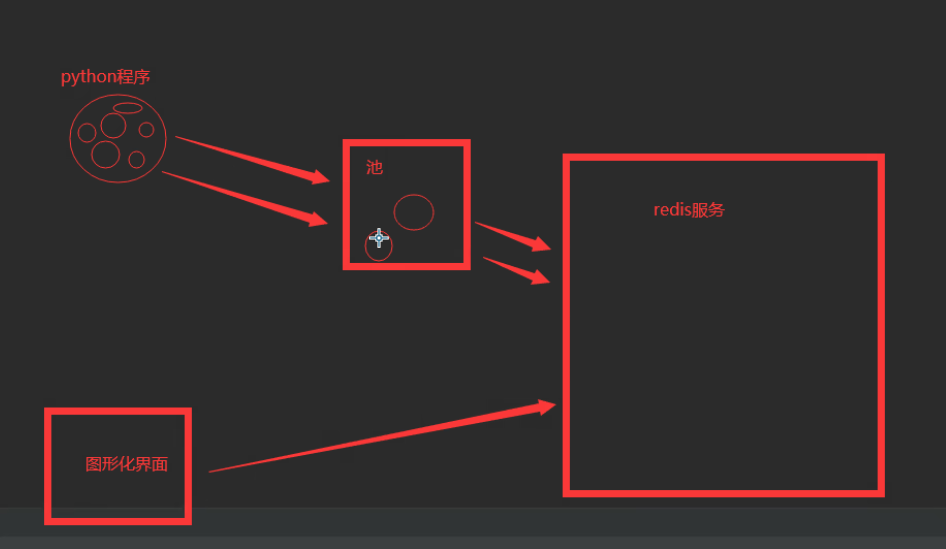
import redis
POOL = redis.ConnectionPool(max_connection=10, host='127.0.0.1', port=6379) # 创建一个大小为10的redis连接池
Django中orm操作mysql是没有连接池的
传统方案连接:
每次都是新的连接,会导致连接的数量过多
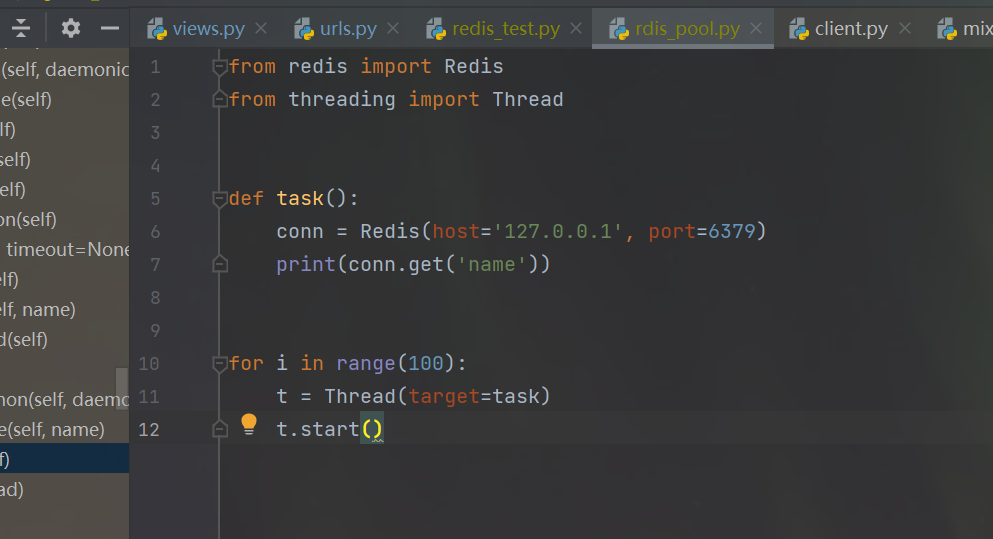
连接池连接:
import redis
# 先创建连接池,指定连接池的大小,以及连接地址
pool = redis.ConnectionPool(max_connections=10, host='127.0.0.1', port=6379)
# 再从连接池里拿出一个连接
conn = redis.Redis(connection_pool=pool)
res = conn.get('name')
print(res)
# 再放回连接池
conn.close()

多线程连接池:
报错原因是拿连接时,池里的连接不够了,没有额外的设置就会报错。必须把它设置成全局只有一个连接池。否者每一个线程都有连接池,而池连接数量是只有十条,这样就有报错池连接不够用
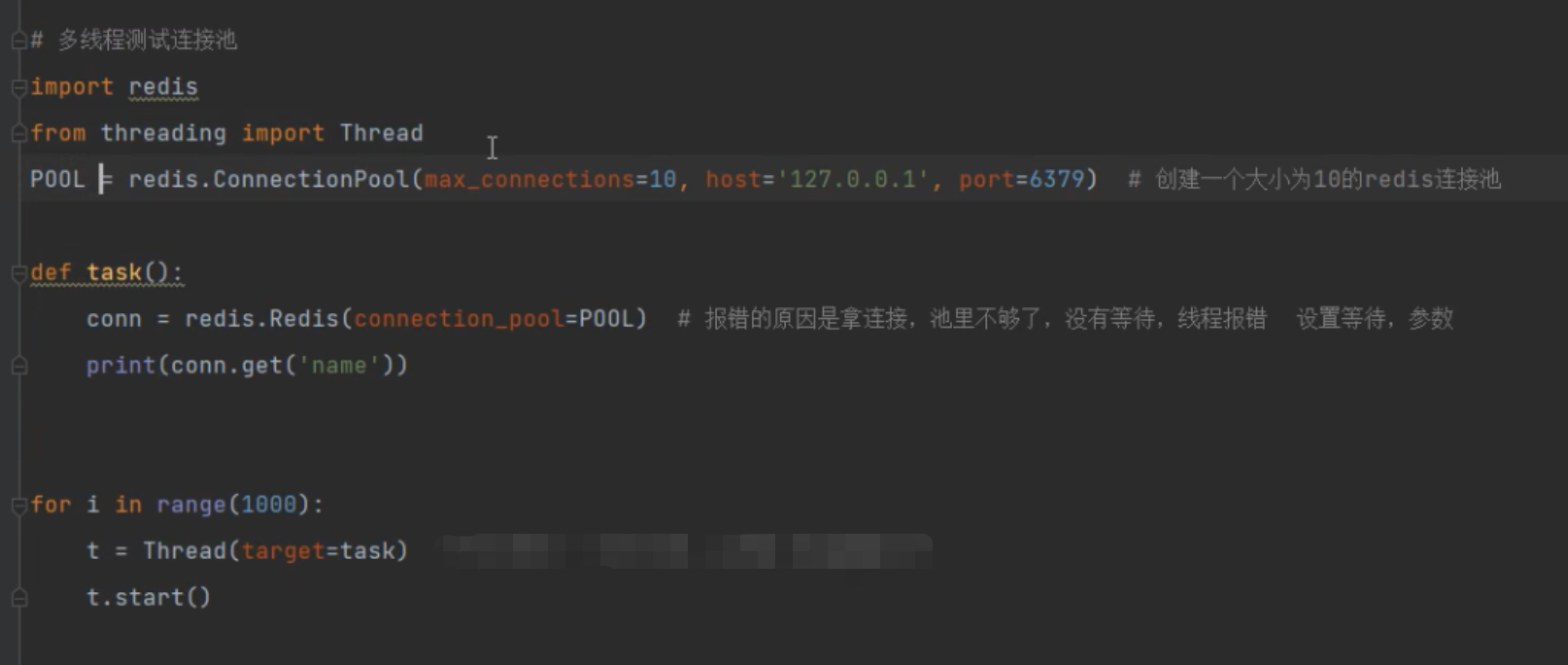
把连接池做成单例:
要把连接池做成单例。这样的话全局就只有一个对象,占的内存小。否则有可能在每个线程中创建了一个池,从池中拿一个连接,性能更低。
导模块的形式,模块天然单例,无论导多少次都是那个一pool对象

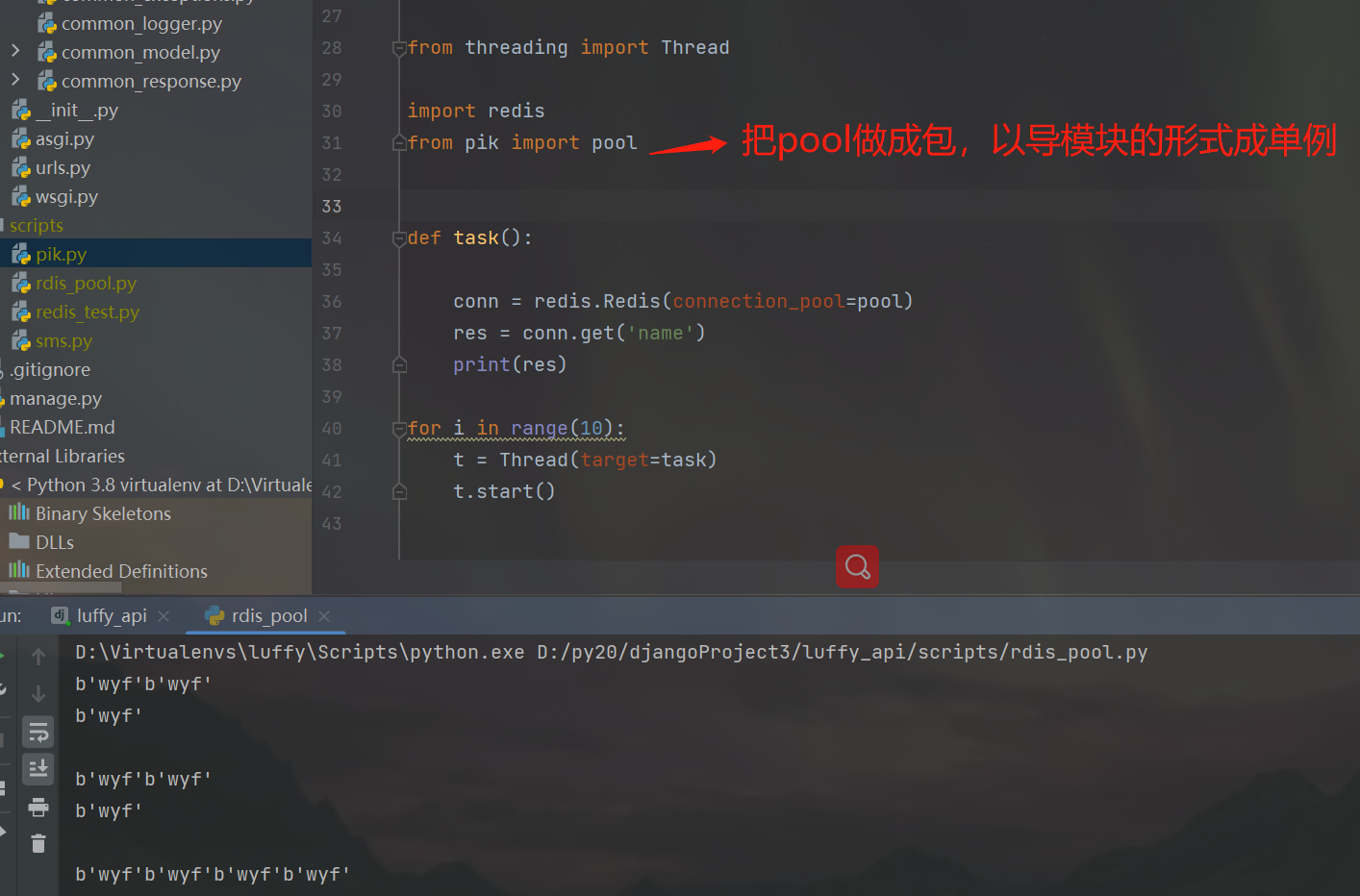
单例模式:
23种设计模式
全局只有一个 这个对象
p1=Person() # p1 对象
p2=Person() # p2 新对象
单例模式6种方式(面试会问)
模块导入的方式,它为什么是单例???
pyc文件,python脚本编译后的文件(这是cpython解释器为了加速运行做的一种机制),只要导了模块就会产生pyc。下次看到pyc就不执行了,就直接把pyc编译后的东西来用,所以第一次会生成
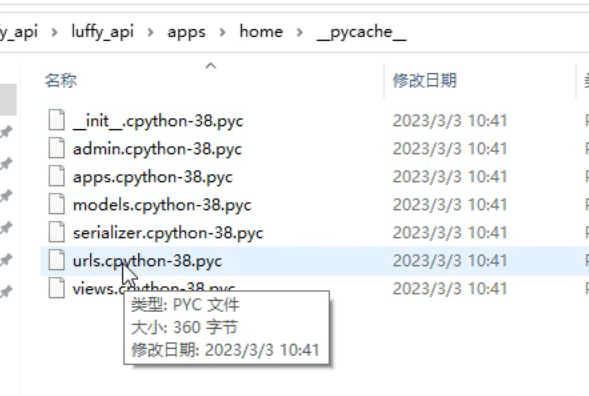
Redis的数据类型
# redis 是key-value形式存储
# redis 数据放在内存中,如果断电,数据丢失---》需要有持久化的方案
# 5 种数据类型,value类型
-字符串:用的最多,做缓存;做计数器
-列表: 用作简单的消息队列
-字典(hash):用作缓存
-集合:用作去重
-有序集合:用作排行榜
key value形式存储,数据是放在内存中,
value的有五种数据类型,
字符串 :有的最多,做缓存。做计数器(效率很高,不会错乱)。多个线程操作同一个变量会导致错乱,加锁。
列表 :简单的消息队列(分布式结构:两个程序结合完成一个事)
字典(hash) :缓存
集合 :去重
有序集合(集合有顺序):排行榜
字符串类型的使用:
重点要记住的:set get strlen统计长度的(字节为单位,一个常规中文占3个字节) incr自增(每运行一次就自增)
'''
1 set(name, value, ex=None, px=None, nx=False, xx=False)
2 setnx(name, value)
3 setex(name, value, time)
4 psetex(name, time_ms, value)
5 mset(*args, **kwargs)
6 get(name)
7 mget(keys, *args)
8 getset(name, value)
9 getrange(key, start, end)
10 setrange(name, offset, value)
11 setbit(name, offset, value)
12 getbit(name, offset)
13 bitcount(key, start=None, end=None)
14 bitop(operation, dest, *keys)
15 strlen(name)
16 incr(self, name, amount=1)
# incrby
17 incrbyfloat(self, name, amount=1.0)
18 decr(self, name, amount=1)
19 append(key, value)
'''
import redis
conn = redis.Redis()
# 1 set(name, value, ex=None, px=None, nx=False, xx=False)
# ex,过期时间(秒)
# px,过期时间(毫秒)
# nx,如果设置为True,则只有name不存在时,当前set操作才执行, 值存在,就修改不了,执行没效果
# xx,如果设置为True,则只有name存在时,当前set操作才执行,值存在才能修改,值不存在,不会设置新值
# conn.set('hobby','篮球',ex=3)
# conn.set('hobby','篮球',px=3)
# conn.set('name','lqz',nx=True)
# conn.set('name','lqz',nx=False)
# conn.set('hobby','篮球',xx=True)
# conn.set('hobby','篮球',xx=False)
# redis---》实现分布式锁,底层基于nx实现的
# 2 setnx(name, value)
等同于:conn.set('name','lqz',nx=True)
conn.setnx('name', '刘亦菲')
# 3 setex(name, value, time)
等同于:conn.set('name','lqz',ex=3)
conn.setex('wife', 3, '刘亦菲')
# 4 psetex(name, time_ms, value)
conn.psetex('wife',3000,'刘亦菲')
# 5 mset(*args, **kwargs)
conn.mset({'wife': '刘亦菲', 'hobby': '篮球'})
# 6 get(name)
print(str(conn.get('wife'),encoding='utf-8'))
print(conn.get('wife'))
# 7 mget(keys, *args)
res=conn.mget('wife','hobby')
res=conn.mget(['wife','hobby'])
print(res)
# 8 getset(name, value)
res=str(conn.getset('wife','迪丽热巴'),encoding='utf-8')
res=conn.getset('wife','迪丽热巴')
print(res)
# 9 getrange(key, start, end)
res = str(conn.getrange('wife', 0, 2), encoding='utf-8') # 字节长度,不是字符长度 前闭后闭区间
print(res)
# 10 setrange(name, offset, value)
conn.setrange('wife',2,'bbb')
# ---- 比特位---操作
# 11 setbit(name, offset, value)
# 12 getbit(name, offset)
# 13 bitcount(key, start=None, end=None)
# ---- 比特位---操作
# 14 bitop(operation, dest, *keys) 获取多个值,并将值做位运算,将最后的结果保存至新的name对应的值
# 15 strlen(name)
res=conn.strlen('hobby') # 统计字节长度 hobby为篮球
print(res) 6
# 16 incr(self, name, amount=1)
自增,不会出并发安全问题,单线程架构,并发量高
conn.incr('age') 默认是1 每执行一次加一
# incrby
# 17 incrbyfloat(self, name, amount=1.0) 数据的精度会有问题
conn.incrbyfloat('age',1.2)
# 18 decr(self, name, amount=1)
conn.decrby('age')
conn.decrby('age',-1)
# 19 append(key, value)
conn.append('hobby','sb')
print(conn.strlen('hobby')) 8 hobby存的数据为:篮球sb
conn.close()
'''
你需要记住的
set
get
strlen 字节长度
incr
'''
3秒自动过期,px毫秒 ex秒
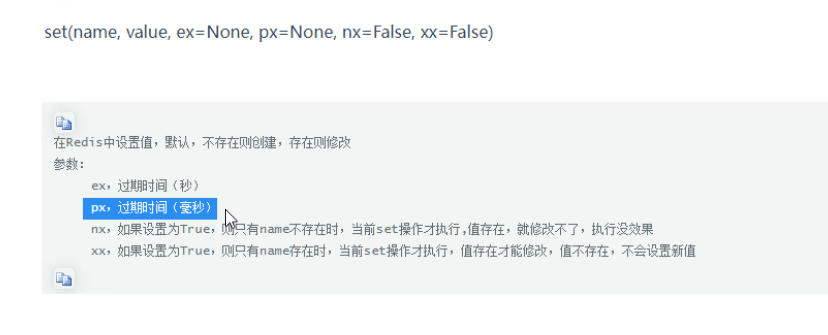

nx=True,无法被改动。
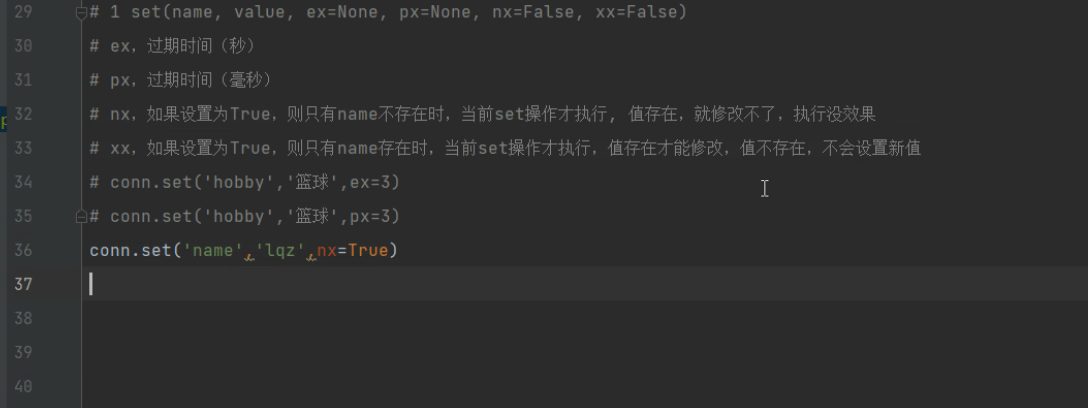
xx=False,就能加进去,True是加不进去
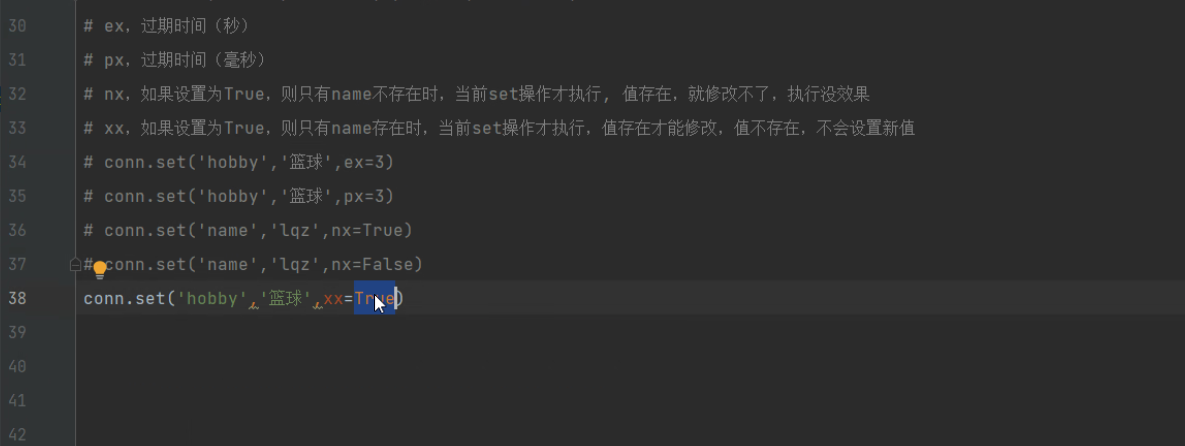
中文一个字占3字节,
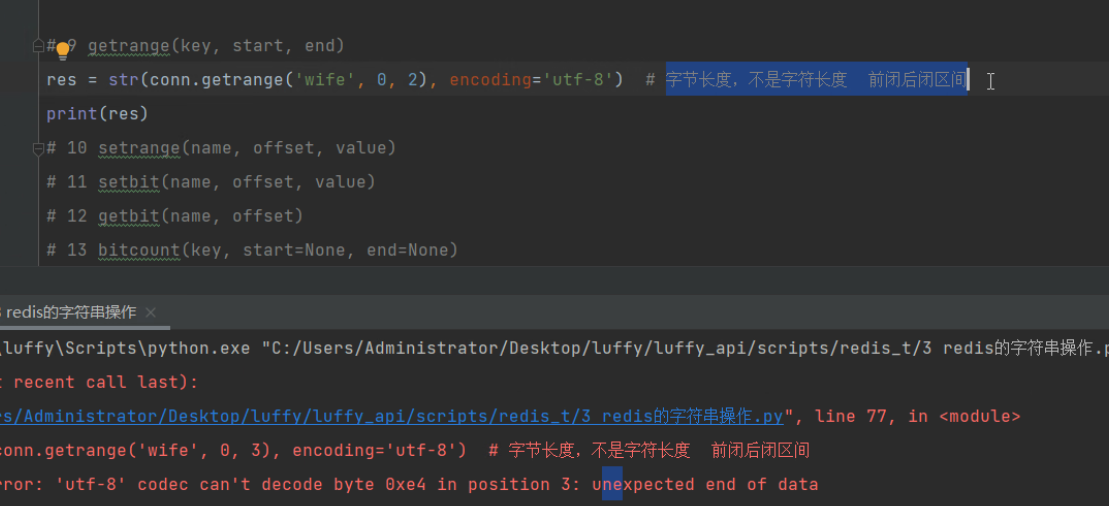
自增incr --->>> 计数 不会出并发问题,单线程架构,并发量高,nicrby与incr同一个。计数器

append 追加

